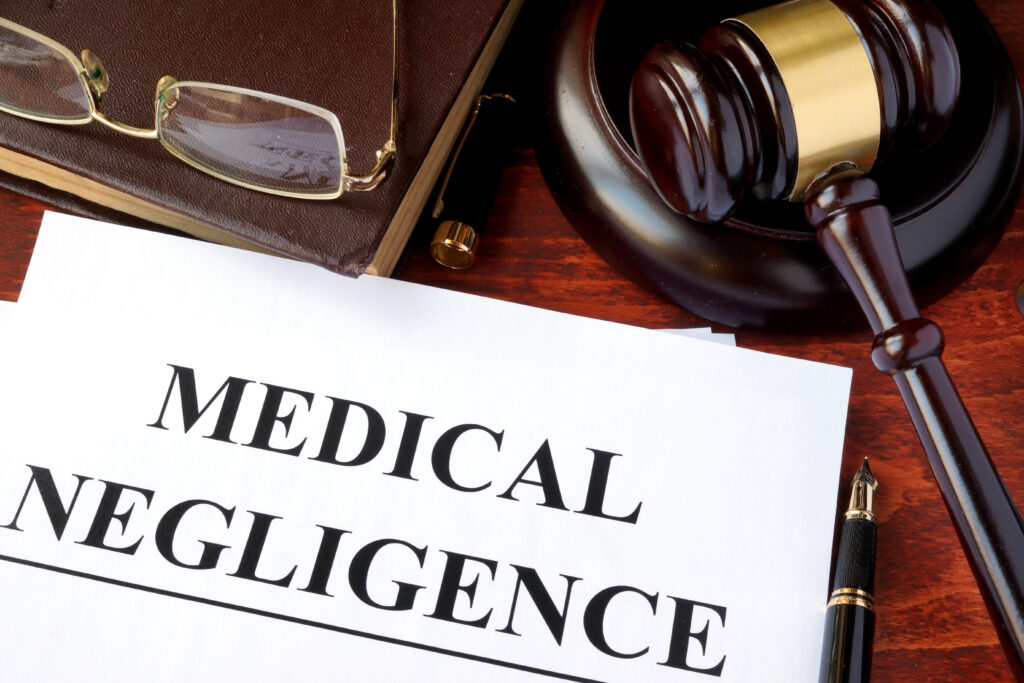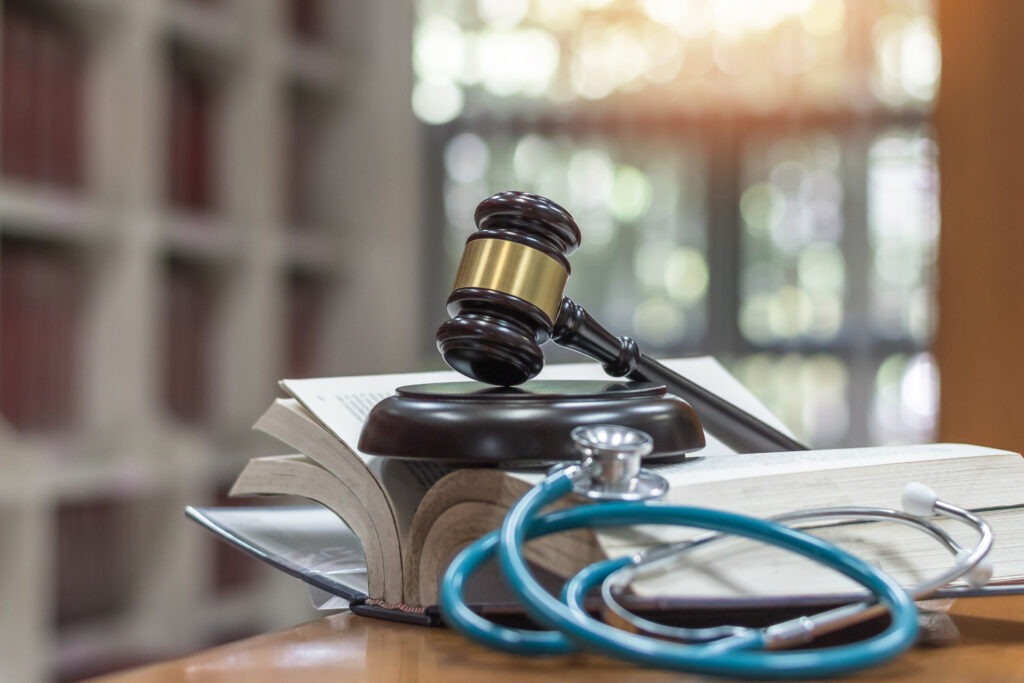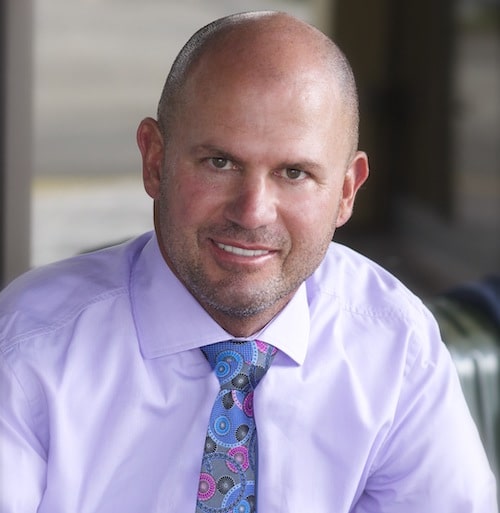What Is Vicarious Liability And How Does It Apply To Medical Malpractice Cases In Florida?
Gregg Hollander | November 9, 2024 | Medical Malpractice

In Florida, vicarious liability plays a critical role in medical malpractice cases. Medical errors can have severe and life-altering consequences for patients, and determining who is legally responsible is a vital step in pursuing justice and compensation. Vicarious liability offers a path for patients to recover damages from the healthcare provider responsible for the error and the institution or employer that may bear some responsibility. Contact a Fort Lauderdale medical malpractice lawyer today if you believe you have a medical malpractice case.
Florida Medical Malpractice Laws
Florida’s medical malpractice laws are designed to balance the interests of patients and healthcare providers. They allow injured patients to seek compensation for medical negligence while also placing certain limitations on medical malpractice claims.
Key aspects of Florida medical malpractice law include:
- Statute of Limitations: In Florida, medical malpractice claims must generally be filed within two years from the date the injury was discovered or should have been discovered but no later than four years after the date of the actual negligent incident. However, if the malpractice involves fraud, concealment, or intentional misrepresentation by the healthcare provider, the statute of limitations may be extended to seven years.
- Caps on Damages: Florida has imposed certain caps on non-economic damages in medical malpractice cases, although these caps have been subject to change following legal challenges. Non-economic damages include compensation for pain and suffering, emotional distress, and loss of enjoyment of life.
- Pre-suit Requirements: Florida law requires patients to undergo a pre-suit investigation process before filing a medical malpractice lawsuit. This involves obtaining an affidavit from a qualified medical expert who confirms that there is a reasonable basis for the malpractice claim.
- Vicarious Liability: As previously mentioned, vicarious liability allows injured patients to hold hospitals and other medical entities accountable for the negligent actions of their employees. Florida courts have adopted and applied the respondeat superior doctrine in many medical malpractice cases.
How Vicarious Liability Works in Florida Medical Malpractice Cases
Vicarious liability can come into play in several ways in a Florida medical malpractice case. Some common scenarios where this legal concept applies include:
Hospital Liability for Doctor’s Actions

One of the most common scenarios where vicarious liability applies is when a hospital is held accountable for a doctor’s negligent actions. Hospitals typically employ doctors and other healthcare providers, and under respondeat superior, the hospital may be held responsible for a doctor’s negligence if the doctor acted within the scope of their employment when the malpractice occurred.
For instance, if a surgeon employed by a hospital performs an operation negligently and harms the patient, the hospital can be held liable for the surgeon’s actions. Similarly, if a doctor employed by a hospital misdiagnoses a patient, leading to delayed or improper treatment, the hospital may also be held responsible for the resulting harm.
Nursing Negligence
Hospitals and healthcare facilities are often held vicariously liable for the actions of their nursing staff. Nurses play a critical role in patient care, and their mistakes can lead to serious consequences for patients. If a nurse fails to administer medication correctly, neglects to monitor a patient properly, or makes other errors while working within the scope of their duties, the hospital may be held accountable.
For example, if a nurse administers the wrong dosage of a medication, causing the patient to suffer harm, the hospital employing the nurse can be held liable under the doctrine of vicarious liability.
Liability for Non-Employee Providers
In some cases, doctors or healthcare providers may not be directly employed by the hospital but may work as independent contractors. Hospitals sometimes argue that they should not be held liable for the actions of these independent contractors. However, Florida law has specific provisions that may allow a hospital or clinic to be held liable for the actions of independent contractors if they appear to be employees.
This issue often hinges on whether the patient reasonably believed that the healthcare provider was acting as an agent or employee of the hospital. If a hospital represents a provider as one of its staff members or if the patient reasonably believes that the hospital employed the provider, the hospital may be held responsible for the provider’s actions, even if the provider was technically an independent contractor.
Vicarious Liability in Emergency Room Settings
Vicarious liability also frequently arises in emergency room settings, where a team often treats patients of healthcare providers, including doctors, nurses, and technicians. Hospitals may be held liable for the negligence of any emergency room staff member who fails to provide the appropriate standard of care.
For example, if a patient comes to the emergency room with symptoms of a heart attack, and the attending physician fails to diagnose the condition promptly, leading to severe harm, the hospital may be held accountable for the physician’s negligence.
Proving Vicarious Liability in Medical Malpractice Cases
In a medical malpractice case involving vicarious liability, the injured party must prove certain vital elements to hold a hospital or healthcare institution responsible for the negligence of its employees or agents. These elements include:
Employment or Agency Relationship
The injured party must demonstrate that the healthcare provider responsible for the negligent act was an employee or agent of the hospital or institution at the time of the incident. This can involve reviewing employment contracts, hospital policies, and other documentation to establish the relationship between the provider and the institution.
Scope of Employment
The injured party must also show that the healthcare provider acted within the scope of their employment when the negligent act occurred. For example, a doctor employed by a hospital would likely be acting within the scope of employment while performing surgery on a patient but not while providing personal medical advice outside the hospital.
Negligence
As in any medical malpractice case, the plaintiff must establish that the healthcare provider’s actions were negligent and fell below the accepted standard of care for the medical profession. This typically requires expert testimony from medical professionals.
Harm
The injured party must prove that the healthcare provider’s negligence caused their injury or harm. This can involve presenting medical records, expert testimony, and other evidence to show the link between the provider’s actions and the resulting harm.
Challenges in Proving Vicarious Liability
While vicarious liability can provide a pathway for injured patients to recover damages, there are challenges involved in proving it. Some of these challenges include:
- Determining Employment Status: In some cases, it may be challenging to determine whether a healthcare provider was an employee or an independent contractor at the time of the incident. This distinction is significant because hospitals may not be held liable for the actions of independent contractors under Florida law.
- Scope of Employment: Establishing whether the provider acted within the employment scope can also be challenging. If a healthcare provider engages in personal activities unrelated to their professional duties at the time of the negligent act, it may complicate the case.
- Expert Testimony: Medical malpractice cases require expert testimony to establish the standard of care and whether the healthcare provider deviated from it. Securing qualified experts can sometimes be difficult and costly, impacting the ability to prove negligence and vicarious liability.
The Importance of Documentation
Documentation is vital in building a strong case in medical malpractice cases involving vicarious liability. Important documents can include:
- Medical Records: Comprehensive medical records detailing the patient’s treatment, diagnosis, and any errors made during care can serve as valuable evidence in establishing negligence.
- Employment Contracts: Documentation that outlines the employment status of healthcare providers can clarify whether they were employees or independent contractors, impacting the determination of vicarious liability.
- Incident Reports: Hospitals often maintain incident reports regarding patient errors or complaints. These reports can provide valuable insight into the circumstances surrounding the negligent act.
- Expert Opinions: Collecting opinions from qualified medical experts can help establish the standard of care and determine whether the healthcare provider deviated from that standard.
Navigating the Legal Landscape of Vicarious Liability
Given all the details and laws surrounding vicarious liability in medical malpractice cases, it’s essential to have a knowledgeable attorney by your side. A qualified Florida medical malpractice lawyer can navigate the intricate legal landscape and help ensure that all aspects of your case are thoroughly investigated and presented.
What to Expect When Working with a Medical Malpractice Lawyer
When you choose to work with a medical malpractice lawyer, you can expect the following steps to be taken:
- Initial Consultation: Your attorney will start with an initial consultation to discuss your case, understand the circumstances surrounding the injury, and determine whether you have a viable claim.
- Case Investigation: The lawyer will gather evidence, including medical records, incident reports, and witness statements. They may consult with medical experts to build a strong case on your behalf.
- Filing Claims: If vicarious liability applies, your attorney will file claims against the responsible parties, including the individual healthcare provider and the employing institution.
- Negotiating Settlements: Many medical malpractice cases are settled before reaching trial. Your attorney will negotiate with insurance companies to secure fair compensation for your injuries, including medical expenses, lost income, and pain and suffering.
- Litigation: If a fair settlement cannot be reached, your lawyer will be prepared to take your case to court, advocating for your rights and seeking the compensation you deserve.
The Benefits of Hiring a Florida Medical Malpractice Attorney

Hiring a Florida medical malpractice lawyer can provide several key benefits for individuals harmed by medical negligence. Medical malpractice cases are highly complex, and a skilled attorney can be invaluable in navigating the legal challenges, protecting your rights, and maximizing your compensation. Here are some of the primary benefits of hiring a Florida medical malpractice lawyer:
Understanding of Florida Laws
Medical malpractice laws vary by state, and Florida has specific regulations and requirements. An experienced medical malpractice lawyer is well-versed in these laws, including the statute of limitations, the burden of proof, and pre-suit requirements, such as filing a notice of intent to sue. They can help ensure your case complies with all legal procedures and is filed within the required time limits.
Thorough Case Evaluation
Medical malpractice lawyers know how to assess the merits of your case properly. They can investigate the facts, consult medical experts, and determine whether negligence occurred. This ensures you have a strong case before proceeding with a lawsuit, saving time and resources.
Access to Expert Witnesses
Proving medical malpractice often requires testimony from medical experts who can demonstrate that a healthcare provider’s actions fell below the accepted standard of care. A seasoned lawyer has connections to credible medical professionals who can provide critical testimony to strengthen your case.
Maximizing Compensation
A medical malpractice lawyer understands the full scope of damages, including medical bills, lost income, pain and suffering, and future care needs. They will fight to secure fair compensation for you, considering the financial and emotional impact of the injury.
Hiring a Florida medical malpractice lawyer ensures that your rights are protected, your case is built on a solid foundation, and you receive the compensation you deserve.
Contact a Florida Medical Malpractice Attorney Today to Advocate for Your Rights

Gregg M. Hollander, Fort Lauderdale Personal Injury Attorney
Vicarious liability is a critical concept in medical malpractice cases in Florida, allowing injured patients to hold hospitals and healthcare institutions accountable for the negligent actions of their employees. Understanding the nuances of vicarious liability and how it applies to your case can significantly impact your ability to recover damages for the harm you have suffered.
Facing the aftermath of medical malpractice is always difficult. Don’t face this alone, If you or a loved one has experienced harm due to medical negligence, it is in your best interest to consult with an experienced Fort Lauderdale personal injury lawyer. With their knowledge of the legal system, experience in handling challenging cases, and commitment to protecting your rights, they can guide you through the process of seeking justice and compensation. Don’t hesitate to reach out for legal assistance—your health, well-being, and future depend on it.
